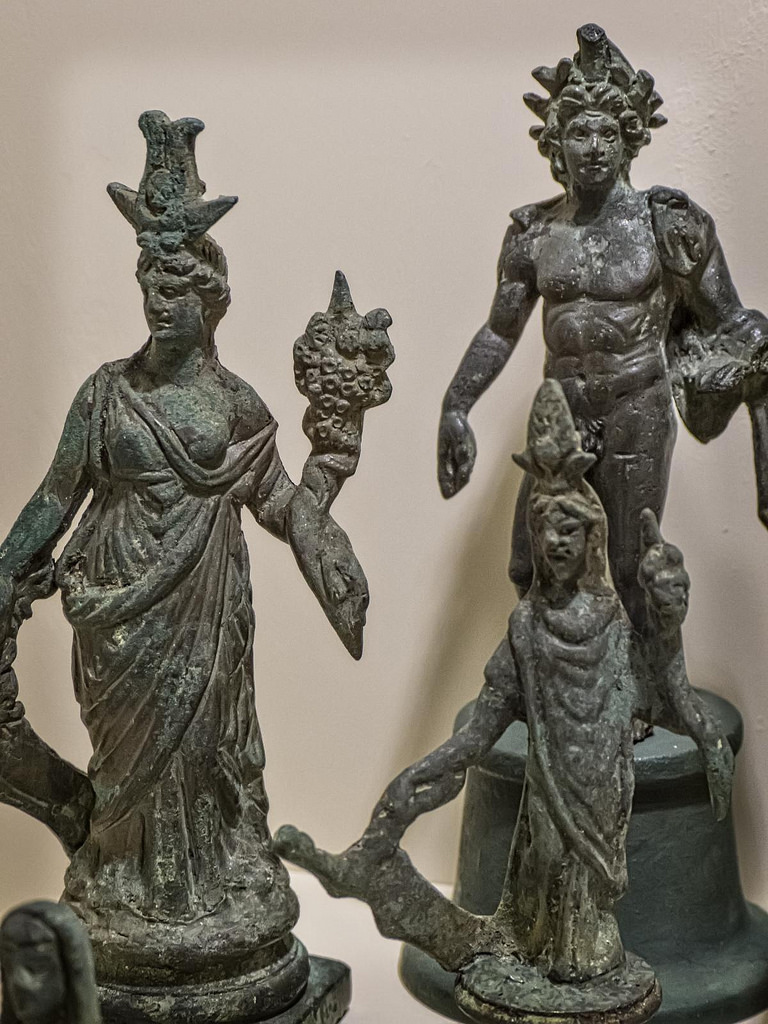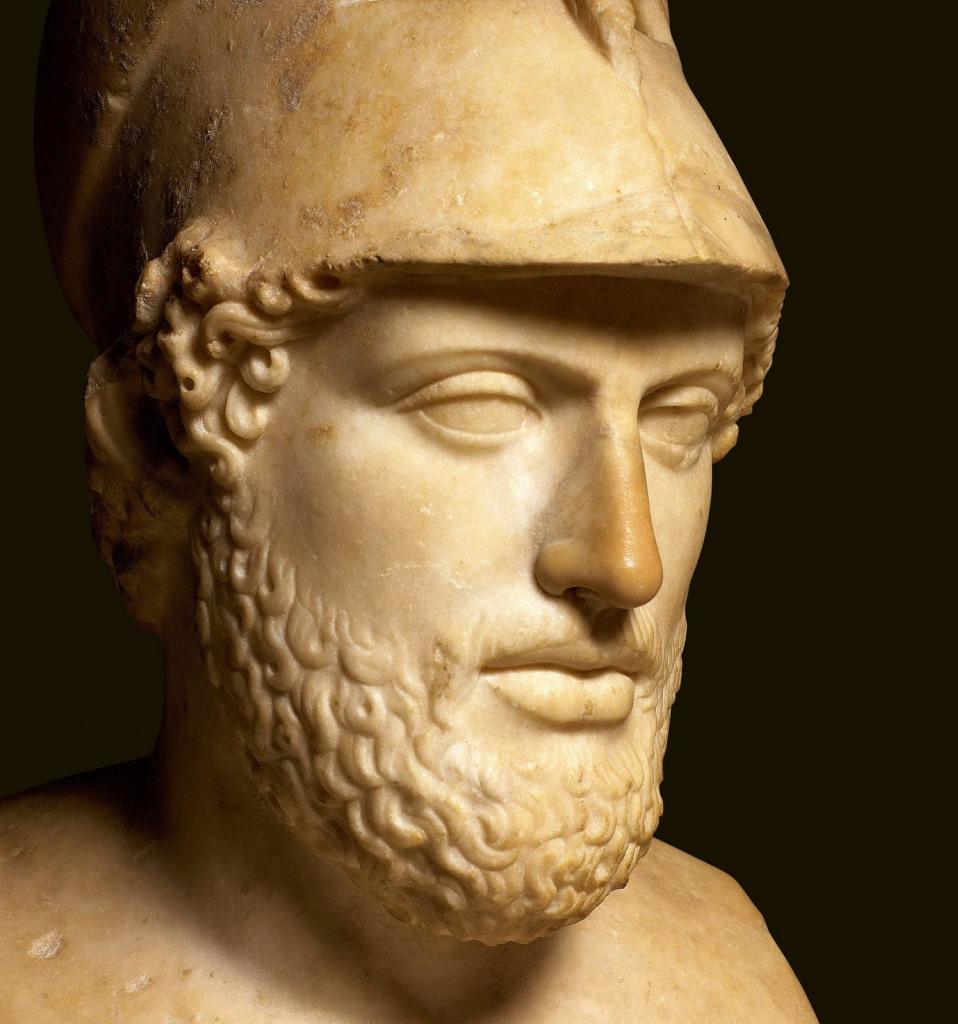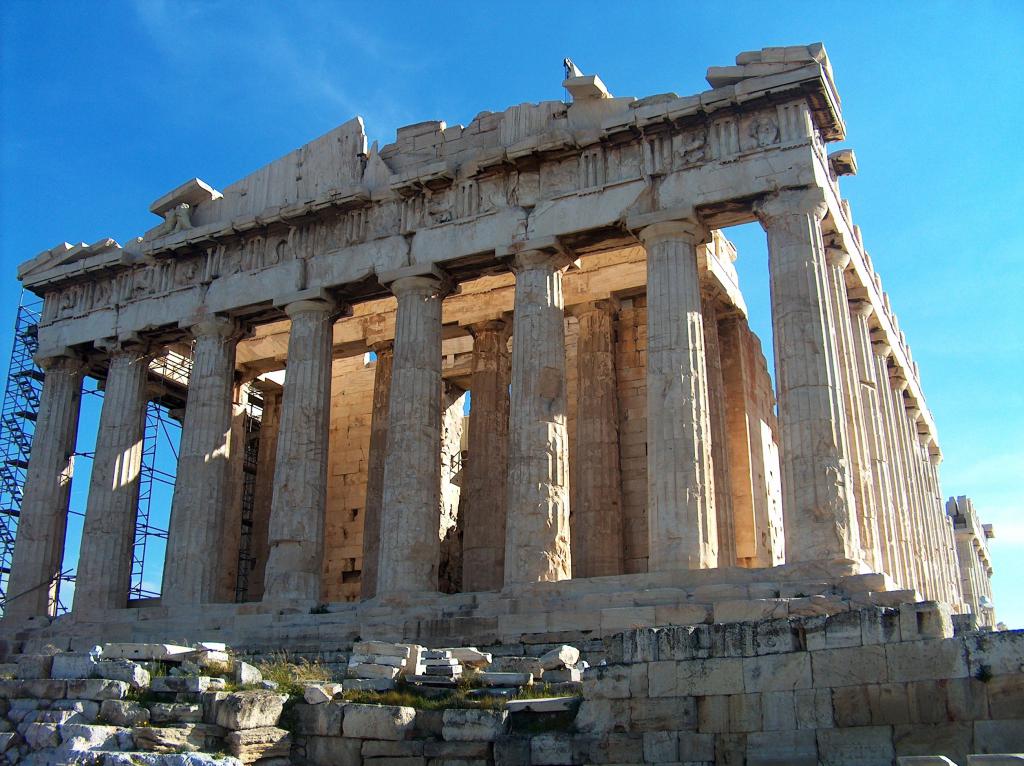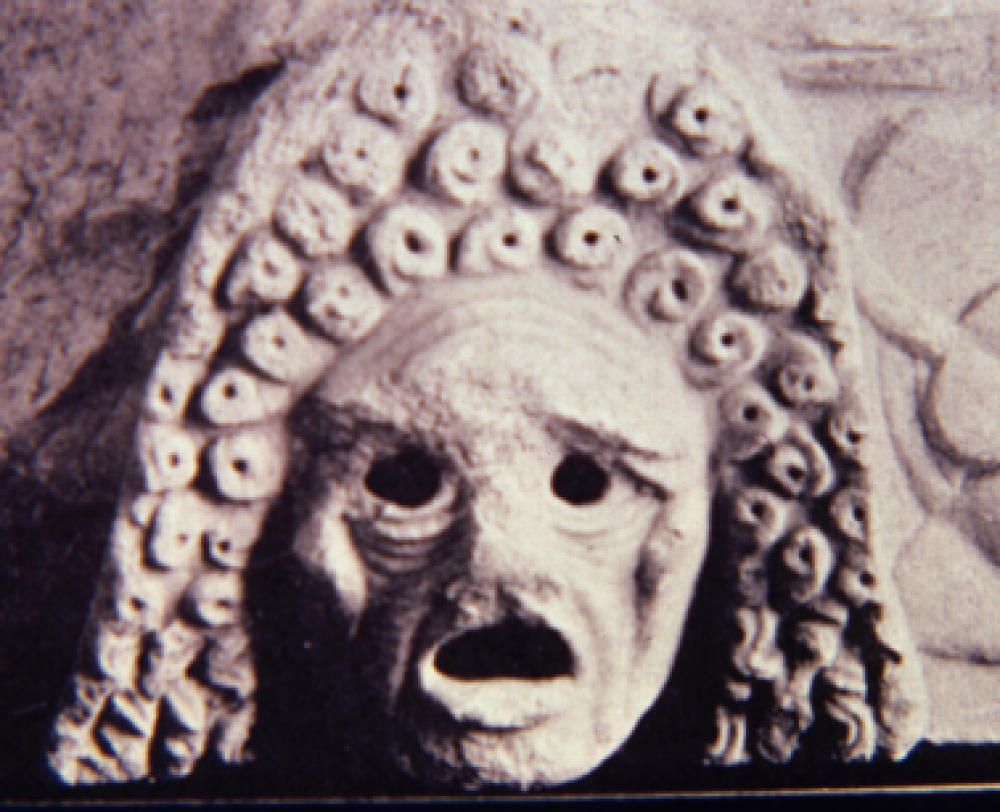The history of Ancient Greece and Ancient Rome, the culture of these states and peoples inhabiting them, do not cease to attract professional historians and art historians, as well as ordinary people who are interested in the achievements of ancient civilization. Despite the apparent remoteness of the heyday of Greece and Rome from our days (Greece was included in the Roman Republic in the 2nd century BC, and the Western Roman Empire fell under the blows of Germanic tribes in the 5th century), the main achievements of antiquity did not lose their relevance . People at school study Euclidean geometry, modern law is largely based on ancient Roman principles, any philosopher begins to build his concepts with the mention of Plato and Aristotle.
It must be borne in mind that the selection of ancient civilization as an integral stage in the history of mankind is based on traits common to the culture of Ancient Greece and Ancient Rome. On the other hand, stemming from a different attitude towards the world, it is mentioned in passing, as if it were no more than a special case of the manifestation of one of the general principles. Meanwhile, the cultural features of the Ancient Greece and Rome manifested themselves already in the forms of state structure: Greece - a conglomerate demonstrating a high degree of autonomy of policies (Athens, Sparta, Corinth), Rome - a centralized republic.
Definition of culture
First of all, it is necessary to determine the very concept of culture. The definition of this term has many options, depending on the approach of a particular researcher or philosophical school. In the broadest sense, culture is everything created by man, using the definition of "second nature" as a synonym. However, this approach leaves aside the ideological component of human activity. In this regard, two components of culture are introduced in scientific works: material (buildings, works of art, costume) and spiritual, which includes art, science and the way of thinking. This separation is unstable, because both aspects of culture are always interconnected: the ideological sphere determines the forms of expression (sculpture, painting, architecture), and material objects stimulate the evolution of the world of ideas (many medieval and Renaissance literary works are created with a clear orientation to antique patterns).
General and special in the ideological sphere
With regard to mentality and way of thinking, the general and the special in the cultures of Ancient Greece and Ancient Rome are briefly determined by their attitude to man and to the world. Both the Greeks and the Romans put man at the forefront. If the chronologically preceding cultures of the Ancient East (Egypt, Mesopotamia, Persia) entered a person into the world around him, and not as his most important element, the thinkers of ancient civilization preferred to endow the gods with purely human qualities. They are capable of experiencing feelings, not always noble (anger, jealousy, envy), to commit motivated actions (in the Homer's Iliad, the gods participate in battles on a par with mortals), and even their lifestyle is no different from that of wealthy people. Perhaps the main evidence of the close mentality of the Greeks and Romans is the fact that, after the conquest of Greece, the Romans fully embraced the Greek pantheon and mythology, preserving only the names of their deities.
There is a serious difference. The Greeks explored the world and solved complex philosophical problems, largely from purely speculative motives. The Romans immediately established themselves as pragmatists. The formulation of the problem and the search for methods for resolving it were determined only by obtaining practical benefits. Continuing the theme of religion, it should be noted that the Romans all of the same practical motives populated every corner with supernatural powers. From domestic deities, bins and penates, protecting the welfare and health of family members, the Romans came to the deification of the dunghill: the god Sterk favored timely and high-quality fertilizer of the fields.

Roman practicalism led to the establishment of partnerships between man and the gods: man made a sacrifice, and God had to fulfill the request for this. Gradually, this led to a depletion of the spiritual realm. Faith became more and more unsteady, and the gods did not answer prayers so often. Borrowing neighboring cults, according to the Roman, on the one hand increased the power of Rome, and on the other gave hope that a foreign god would sooner respond to a request. In this regard, the pantheon became wider and eventually collapsed, under the onslaught of a centralized and detailed Christian religion.
Education and training in ancient civilization
To compare the culture of Ancient Greece and Ancient Rome, the process of transferring knowledge and traditional values from one generation to another is of particular interest. In this regard, ancient civilization also took a step forward in comparison with the ancient Eastern ones: if cramming and mechanical memorization of rules prevailed in the latter, then the Romans and Greeks strove for the child to perceive the causes and consequences of this or that process.
The differences were in the amount of knowledge. Roman practicalism required that the child possess only the necessary skills: reading, writing, counting. Even later, when the educational programs expanded, the aim of studying, for example, classical poets and speakers was to imitate their style, which has already established itself as successful. The Greeks, on the other hand, strove for harmony between intellectual, physical, and musical education, believing that this is precisely the beauty of man.
Ancient culture - Ancient Greece and Ancient Rome in this one - was created and spread primarily in the male environment. Although women could play a significant role in public life (the famous poet Sappho, the Roman empresses Agrippina, Messalina, the outstanding mathematician Hypatius), the goal of their upbringing was primarily the ability to housekeeping. Of course, he was taught elementary knowledge - counting, writing, but intellectual conversations, philosophical studies in both states have long been considered a purely male occupation.
Antique art
If we talk about the culture of ancient Greece and Rome briefly, then all its forms and varieties will be reduced to the postulation of man as the center of the universe. One look at the paintings and reliefs, for example, of Ancient Egypt, is enough to understand: it was not a specific person portrayed, but some ideal image. Otherwise in Greece. Sculptors sought above all to give portraiture similarities to the model. Moreover, the idea of beauty still required some adjustments. The Athenian politician Pericles had an irregularly shaped head resembling a bulb, which is why the sculptor Phidias on all busts of this politician masked his defect with a helmet.

At the same time, Greek masters sought allegory and symbolism. This is largely due to the fact that most of the depicted scenes (for example, painting vessels) were taken from mythology. The human figure was conveyed not in static, but in dynamics: these are the sculptural images of some famous athletes - winners of the Olympic Games. In this regard, Greek art is open to the world, is in interaction with it.
In comparison with the culture of Ancient Greece, Ancient Rome paid more attention to the analysis of the depicted. Greek plasticity here gives way to picturesqueness. Images of emperors - Nero, Caligula, Claudius - are characterized by a realistic approach to their creation: the Roman sculptor conveys small details of his appearance, does not seek to embellish his model.
Architecture features
The culture of the ancient world - Ancient Greece and Rome - is most visibly embodied in architectural monuments. Greek openness to the world was expressed in the creation of buildings on which it was possible to navigate without losing touch with the environment. For the most part, religious and public buildings were just a place allocated in the world, designed to perform any function. A characteristic feature of the ancient policy is the presence of agora, that is, the area on which a large number of people can gather to discuss any issue. The lack of central government in the usual sense of the word, the policy organization did not require specific buildings.

Rome, as a centralized state, inevitably faced with the need to create infrastructure. The constant increase in the number of city residents required the construction of public buildings: amphitheaters, circuses, baths, libraries. This required the introduction of new construction technologies. If the Greeks used a certain number of columns, on which stone slabs, which function as a ceiling, lie, the Romans used concrete masonry, which allows to build a solid building in a short time. Perceived by the Greeks aesthetic categories (for example, three orders - Dorian, Ionic and Corinthian) very quickly turned into only a decorative element.
Literature
At the mention of literature, the first thing that is recalled from the history of the culture of Ancient Greece and Ancient Rome is epic poetry: The Iliad and Odyssey of Homer, and Virgil's Aeneid, written in imitation and continuation of it . Perhaps it was in this area that the influence of the culture of Ancient Greece on Ancient Rome was most affected. Orator Cicero called his speeches against Catilina Catilinarians, as before the Greek orator Demosthenes called his speeches by the name of the Macedonian king the Philippines. From the Greeks, the art of theater and drama was perceived.
Greece had a rich oral tradition, on the basis of which the epic arose. With the borrowing and modernization of the Phoenician alphabet, it turned out to be possible to fix folk art in writing. The Roman people, because of their practicality, ignored this area of culture, preferring to write down the necessary things: significant events, treaties, speeches of political figures. This predetermined the imitation of the Roman epic: it was impossible to create something original in terms of interaction with Greek tradition. The first writers were engaged only in the adaptation of classical texts to Roman realities.

This can be seen and the positive side. From the Greeks, the Romans borrowed a historiographic tradition, represented primarily by the works of Herodotus and Thucydides. The Roman desire for analysis and a meticulous description of the details led to the fact that historical science broke up into several branches. The geographical description became independent (for example, "Geography" of Strabo in seventeen books). Historians also described biographies of famous figures (The Life of the Twelve Caesars by Suetonius) and created extensive research (The History of the Foundation of the City by Titus Livius).
In short, the culture of Ancient Rome and Ancient Greece, using the example of literature, demonstrates a high degree of interpenetration. Strabo, known as the Roman geographer, was Greek by birth, and this applies to many other ancient scholars.
Theater
One of the most significant achievements of the ancient culture of Ancient Greece and Ancient Rome is dramatic art. Initially, the performance was an element of sacred action during the sacrifices to Dionysus, the god of winemaking. Over time, their forms became more complicated by the 5th century BC. the main theatrical genres are being formed: tragedy (most often on mythological subjects) and comedy (very early acquired a rigid political orientation). The high quality of ancient Greek dramaturgy is evidenced by the fact that to this day the tragedies of Aeschylus, Sophocles and Euripides and the comedies of Aristophanes continue to be staged on the stages of the world's leading theaters.

The presence of theatrical performances is common in the culture of Ancient Greece and Ancient Rome. The different in this case was manifested in the inclusion of the theater in the program of festivals, often held in Rome. The performances were carried out after gladiatorial battles or circus performances. Unlike Greek, Roman theater did not become an independent phenomenon of spiritual life. This is clearly indicated by the fact that the acting profession was perceived by the Roman as a loss of honor and dignity.
Writing
The general and different in the culture of Ancient Greece and Ancient Rome was quite clearly manifested in the way of fixing knowledge. Common was the presence of alphabetical writing, where a separate sign denotes a separate sound, but the differences appeared in the phonetic composition of speech. The Greeks could do with 24 letters, the Romans took 26 (including those that were required to transmit Greek sounds). The use of an easy way of writing, which does not require a lot of material, made it possible to record many achievements of science and art.
Scientific knowledge
A comparison of the culture of Ancient Greece and Ancient Rome would not be complete without a review of scientific knowledge in these societies. The Greeks, attracted by curiosity and the desire to understand everything, contributed to the differentiation of ancient natural philosophy into separate scientific disciplines. A special role was played by mathematics, primarily geometry. The Greeks formulated the principle of the golden section and solved a number of complex problems, using only a pair of compasses and a ruler without a scale. At the same time, a striving for the sacralization of mathematical knowledge is noted: Pythagoras and his students believed that the number contained knowledge about the whole world. Therefore, they sought to find special numbers: friendly, simple, perfect, and so on.
Roman practicalism did not allow to get carried away by the research of the Pythagoreans. Instead, scholars dealt with more practical disciplines such as agronomy, law, and philology.
Household culture
As is known from the cultural history of the Ancient Greece and Rome, men played a predominant role in society. At their disposal were various associations and unions, where one could feast in the company of like-minded people, and then reflect on complex topics (this was especially clearly demonstrated in Plato's “Feast”).
A feature of the culture of Ancient Greece and Ancient Rome was a strong patriarchal authority within the family. It extended not only to households, but also to slaves. By giving personalized things to his disgusting wife, the husband could send her to the parental home - this replaced a divorce.
The Romans became the inventors of surnames in the modern sense of the word. At birth, the child received a personal name (their choice was limited, the most common: Mark, Gnei, Tiberius, Guy) and a generic name - the prototype of the family name (Sempronius, Julius and so on). Freedmen or foreigners taken into the villa of a rich man received the patronymic of the owner. For special merits, a third name was assigned to a person. The most famous among them: Caesar, Augustus, Caligula.